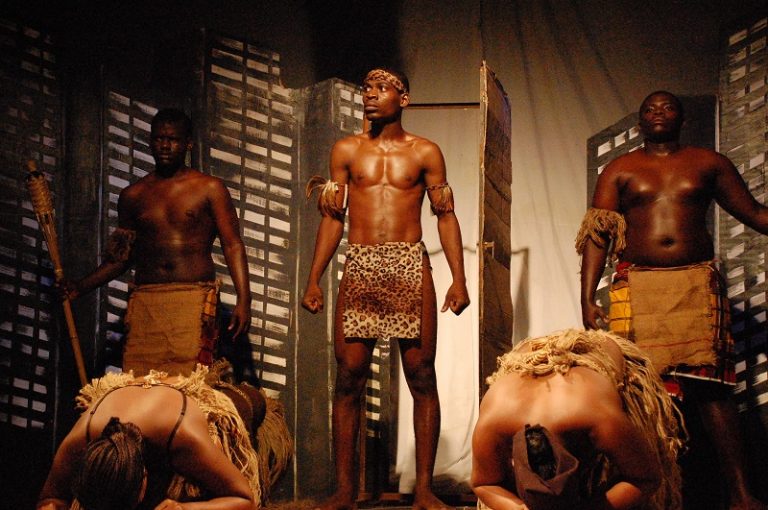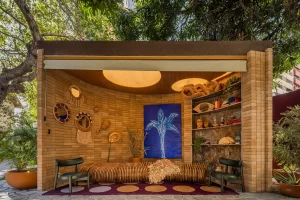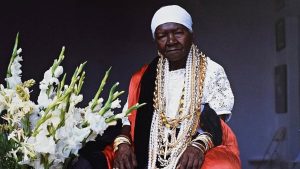
Portugal, Mozambique, Cape Verde, Brazil and Angola are on the stage of Sesc Ipiranga , from June 2 to 11, at the Yesu Luso – Portuguese Language Theater Festival, curated by actress Arieta Corrêa and producer Pedro Santos . Present on five continents, the language that unites all these nations is the fourth most talked about in the world. But sometimes it seems to walk isolated, lonely. “What shocks us is the gigantic distance between the homelands that speak the same language. A silence, an abyss, a distance, with regard to social relations between most Portuguese-speaking countries, “comments Arieta.
With the dream of changing this panorama, the show mixes the Portuguese in infinite possibilities and works the relations that each of the countries have with the Brazilian artistic production. During the program, which includes six plays, a workshop and three debates with artists and thinkers from all five countries, these combinations may be, for example, nationalities.
Notícias Relacionadas



The exchange of cultural experiences happens in two different shows of Portuguese trupes, directed by two great names of the Brazilian theater. Eduardo Tolentino de Araújo, the founder of the TAPA Group, for example, directs the artistic nucleus of the Braga Theater Company in the montage A Picasso by the American playwright Jeffrey Hatcher.
Brazilian filmmaker Marco Antonio Rodrigues, co-founder of Folias D’Arte and winner of the Molière and Mambembe awards, is in the direction of ” The Three Sisters (Making Of)” , inspired by the homonymous work of the Russian writer Anton Tchekhov (1860- 1904). The assembly is staged by the Portuguese group Teatrão.
When thinking about a human and historical (re) approximation, the curators of Yesu Luso came to the conclusion that the best route to this interaction would be art. “Through the different artistic expressions of each of these countries, we can reflect, relate, identify and truly engage with each other,” says Corrêa.
The Brazilian audience will have access to figures that guide the culture and the Angolan imaginary in Rostos de Loanda, Luanda , of the Collective Group Miragens de Teatro . It will also accompany the issues of feminism in Mozambican reality in What is the Sentence? The Woman Who Killed the Difference, with a strong interpretation of Assucena Daniel and Castigo dos Santos.
Dense themes, such as sexual abuse of minors, are presented by Cape Verdeans from the Theater Group of the Portuguese Cultural Center of Mindelo in Teorema do Silêncio , with text by Caplan Neves and direction by João Branco. The general weariness and extermination of intimacy in today’s world are the debates of a theater actor and a porn star in ” I Can’t Breathe,” in which Elmano Sancho appears as author, director and still plays, alongside Cheila Lima.
NASCEDOURO
The Yesu Luso Festival, which has its name derived from a Mozambican dialect (in which the term “yesu” means ours), came from a pilot project called the Lusophone Theater Festival, which was presented by Arieta Corrêa and Pedro Santos at Sesc Bom Retreat in 2015. This “first edition” had a similar format, with pieces and workshops of artists brought from the same five countries of the show repaginada.
ARIETA CORRÊA
Born in the interior of São Paulo, Arieta Corrêa began her career in amateur theater at age 10. He was a member of the Companhia de Ópera Seca (Company of Dry Opera), of Rio de Janeiro director Gerald Thomas, while studying at the Federal University of Rio de Janeiro (UFRJ). He appeared in his first novel, “The King of the Cattle”, directed by Luiz Fernando Carvalho, in 1996.
Three years later he joined Antunes Filho’s CPT, with whom he worked for eight years and starred in “Medeia 1 e 2”, “Antígona” “Gregorio’s Corner” and “Pret-a-porter”. She also directed William Shakespeare’s “Macbeth” and “Letters to the Young Poet” by Rainer Maria Rilke.
As of 2010, the actress began her career in the cinema, when participating in the feature films “How to Forget”, by Malu de Martino; “VIPs”, by Toniko Melo; “A Man Anyone” by Caio Vecchio; “Vitrola” by Charly Braun; “Finding Josef”, by Moises Menezes; And “Octávio e as Letras”, by Marcelo Masagão.
His most recent theatrical works were “TRIBOS” by Ulisses Cruz; “Florbela”, of his own, and “Jacqueline”, by Rafael Gomes. It was shown and contemplated with important Brazilian prizes of scenic arts, like Shell, Question of Criticism and Who.
PEDRO SANTOS
Born in Braga, northern Portugal, in 1981, Pedro Santos holds a bachelor’s degree in Animation and Artistic Production and a degree in Artistic Production, both at the Polytechnic Institute of Bragança. He also holds a degree in Audiovisual and Multimedia from PME Portugal.
He also organized the 1st Biennial of the Mascareto Biennial in Bragança, and during this same period he worked in the Municipality of Braga, producing great productions such as “O Bragajazz”, “O BragaRomano” and “Mimarte”. He worked for eight years as producer of the historic Theatro Circo de Braga, a centennial space that maintains an intense national and international programming.
He arrived in Brazil in 2015 to produce the show “Florbela”, by Arieta Corrêa, inspired by the biography and poems of the Portuguese poet Florbela Espanca (1894-1930).
Check below the programming of Yesu Luso Festival – Portuguese Language Theater:
Shows
“A Picasso” – Theater Company of Braga (Portugal)
Paris is occupied by the Germans. The Gestapo wants a Picasso work for a vernissage. He is taken to a bunker where he meets an attractive blonde who is there on a secret mission: get the artist’s authentication in at least one of three self-portraits. After a verbal battle between the painter and the agent, Picasso ends up assuming the three drawings, from different periods of his life.
Author: Jeffrey Hatcher Translation : Brian Head / Directed by : Eduardo Tolentino de Araújo / Cast : Rui Madeira and Solange Sá
Rating : 12 years
Where : Theater
When : 2 and 3/6 at 9PM
How much : R $ 30,00, R $ 15,00 and R $ 9,00
“I can’t breathe”, by Elmano Sancho (Portugal)
A theater actor and a former pornographic actress are hoping to understand the growing absence of intimacy, the urgent need to make everything visible, the feeling of suffocation and indifference, widespread fatigue and above all, they try to avoid The announced end of mystery and illusion in their lives.
Authorship and Staging : Elmano Sancho / Support for dramaturgy : Rui Catalão / Interpretation : Cheila Lima and Elmano Sancho
Rating : 18 years old
Where : Auditorium
When : 6 and 7/6 at 9:30 p.m.
How much : R $ 30,00, R $ 15,00 and R $ 9,00
“The Three Sisters (Making Of)”, from Grupo Teatrão (Portugal)
Irina, Macha, Olga, André e Verchinin estão na sala de estar de uma casa-fantasma. As perguntas de Anton Tchekhov (1860-1904) nesse texto, são feitas por todos nós: O que se pode construir depois da destruição? O que se pode querer? O que se pode sonhar? Vivemos e revivemos a história desta família, porque afinal tudo lá nos é familiar. O texto é construído a partir da obra “Três Irmãs”, do escritor russo.
Encenação: Marco Antonio Rodrigues / Elenco: Inês Mourão, Isabel Craveiro, João Santos, Margarida Sousa, Rui Raposo / Elenco de apoio: Miguel Rocha e João Amorim.
Classificação: 12 anos
Onde: Teatro
Quando: 10/6, às 21h, e 11/6, domingo, às 18h
Quanto: R$ 30,00, R$ 15,00 e R$ 9,00
“Qual é a sentença? A mulher que Matou a Diferença”, do Grupo Katchoro Kupalucha
(Moçambique)
Num tribunal, não se sabe bem onde, uma mulher é julgada por ter matado a diferença. Por ter tido a coragem de gritar um basta à sujeição e à submissão, em que durante séculos as mulheres eram sempre condenadas. Antes de se ditar a sentença, em jeito de protesto, ela faz um monólogo da sua dor. Conta as peripécias da sua vida. Com ela, o público revive o drama da mulher num mundo governado pela cegueira do machismo.
Texto e direção: Guilherme Roda / Elenco: Assucena Daniel e Castigo dos Santos
Classificação: 14 anos
Onde: Auditório
Quando: 3/6, às 19h30, e 4/6, às 18h30
Quanto: R$ 30,00, R$ 15,00 e R$ 9,00
“Rostos de Loanda, Luanda”, do Grupo Colectivo Miragens (Angola)
A peça narra a história de rostos que marcaram a cidade de Loanda, hoje conhecida como Luanda. Retrata a vida de João Muleta, um deficiente que, após se embriagar, vê figuras importantes que marcaram a história da cidade. Em suas alucinações, aparecem Salvador Correia de Sá e Benevides, Dom Miguel de Melo, o fundador da cidade, Paulo Dias de Novais, o Grupo Ngola Ritmos, os músicos Urbano de Castro, Minguito, Luís Visconde, entre outros. Um misto de história e realidade que marcaram a sociedade angolana e que são retratadas por estas figuras.
Texto e encenação: Walter Cristóvão /Interpretação: Wime Braúlio, Luís da Costa, Elizabeth Rodrigues, Rodrigo Fernandes, Eliseu Diogo, José Teixeira, Serafina Muhongo, Rosa Sousa, Mariana António, Sizainga Francisco e Sidónio Domingos
Classificação: 14 anos
Onde: Teatro
Quando: dias 7 e 8/6, às 21h
Quanto: R$ 30,00, R$ 15,00 e R$ 9,00
“Teorema do Silêncio”, do Grupo de Teatro do Centro Cultural Português do Mindelo
(Cabo Verde)
O espetáculo trata do abuso sexual de menores. Em sua dramaturgia, não permite que o público fique neutro a esta temática. Abordando objetivamente o silêncio sobre a violência, fala de abuso e de morte – da alma e do corpo – como coisas reais e comuns. A partir deste assunto, o espetáculo promove o direito à recusa de toda espécie de manipulações corporais e espirituais invasivas.
Texto: Caplan Neves / Encenação, Cenografia e Direção Artística: João Branco / Interpretação: João Branco e Janaina Alves
Classificação: 12 anos
Onde: Auditório
Quando: 9/6 – sexta, às 21h30 / 10/6 – sábado às 19h30
Quanto: R$ 30,00, R$ 15,00 e R$ 9,00
Atividades de formação
As inscrições serão feitas na Central de Atendimento do Sesc Ipiranga a partir do dia 2/6. Para maiores de 16 anos.
Bate-papo
Mesa de Diretores
Com Rui Madeira (Portugal), Eduardo Tolentino (Brasil) e Marco Antonio Rodrigues (Brasil). Mediação de Arieta Correa.
Bate-papo entre três diretores teatrais que terão trabalhos apresentados na mostra Yesu Luso – Teatro em Língua Portuguesa. Na pauta, o processo de desenvolvimento de seus trabalhos realizados em outros países lusófonos. Também serão abordadas as impressões trocadas, experiências, dificuldades e descobertas destes intercâmbios.
Onde: Convivência
Quando: 2/6, sexta, às 15h
Quanto: Grátis
Bate-papo
Cena Lusófona
Com Diaz Santana (Moçambique), Elmano Sancho (Portugal), João Branco (Cabo Verde) e José Teixeira (Angola). Mediação de Arieta Correa. Conversa entre artistas de diferentes culturas, debatendo sobre suas expressões lusófonas no teatro e a importância da propagação em outros países falantes da língua portuguesa.
Onde: Convivência
Quando: 10/6, sábado, às 15h
Quanto: Grátis
Oficina
Making Of – Oficina de interpretação a partir de As Três Irmãs
Com Isabel Craveiro e Marco Antonio Rodrigues.
Ação desenvolvida a partir da versão de “Três Irmãs”, de Anton Tchekhov, gerada no processo entre o encenador brasileiro Marco Antonio Rodrigues e o coletivo português Teatrão. Nesta versão, criada sob a tensão de um momento crítico para Portugal, o espetáculo circula em quatro atos, por quatro espaços: uma repartição pública, um local em que a arquitetura contemporânea se confronta com a ruína, um espaço militar e o jardim do teatro. O trabalho com os participantes se dará a partir de um fragmento do texto do segundo ato e partindo de fotografias deles, que marquem momentos importantes tanto para suas vidas quanto para o país.
Onde: Espaço de Tecnologias e Artes
Quando: 8 e 9/6, quinta e sexta, às 19h
Quanto: Grátis / 20 vagas
Encontro
O Teatro Português e o Contexto Socioeconômico
Com Rui Vieira Nery
O encontro retoma o debate da conferência “Cultura e Neoliberalismo”, parte integrante de um ciclo mais vasto denominado “CASA/TERRITÓRIO: Sujeito, Democracia e Pertença”, desenvolvido a partir da produção “As Três Irmãs (Making Of)”. Neste encontro, serão debatidas questões acerca da contemporaneidade e a forma como a Arte pode criar brechas de discussão e alternativas a uma construção hegemônica do mundo.
Onde: Teatro
Quando: 11/6, domingo, às 15h
Quanto: Grátis
YESU LUSO – TEATRO EM LÍNGUA PORTUGUESA
De 2/06 a 11/06. Teatro (200 lugares)
Ingressos: R$ 9,00 a R$30,00
Sesc Ipiranga: Rua Bom Pastor, 822 – Ipiranga
Telephone – (11) 3340-2000 – www.sescsp.org.br/ipiranga
Access for disabled
(There is no parking)
Tickets on sale through the portal www.sescsp.org.br or at the box offices of the units
Box office Sesc Ipiranga – Tuesday to Friday from 12h to 21h; Saturdays, from 10h to 21h30; Sundays and holidays from 10am to 6pm
Notícias Recentes




